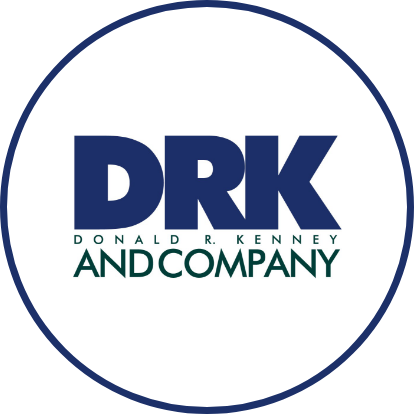Investing comes with questions, and having the answers could make the difference between success and failure.
When it comes to investing in either real estate or the stock market, it’s not uncommon to dip the proverbial toe in both. However, if you’re looking to pick just one path between the two, the question becomes: which option is better? Which one will yield the most returns, and which one comes with the fewest risks? Or do both options offer an equal mix of pros and cons?
Consider this your official guide to the longstanding debate of real estate vs. stock investments.

Investing in Real Estate
Before you start scouting properties and raking in cash, it’s important to know just how this whole real estate investment thing works. How exactly does investing lead you to a full wallet?
The first secret ingredient is value appreciation. Over time, property value increases as areas change and the economy fluctuates. As a property’s worth goes up, its value appreciates, and that means more money for those who invest in their upkeep. The second essential to real estate investment is rental income, which – as the name implies – involves charging rent from tenants that reside or work on your property. This generates income, and further contributes to value appreciation.
The Pros of Investing in Real Estate
By accumulating appreciated money or earning revenue from rent, you can turn property ownership into a lucrative investment option. Here are some of pros of investing in real estate:
It’s a simple method. The process for buying a property is pretty straightforward: you simply purchase the real estate, keep it running with consistent upkeep and maintenance, and then resell it for more than you paid for it.
There are tax advantages. Selling a principal residence, for example, might let you avoid capital gains taxes on net proceeds of $250,000 if certain conditions are met.
It’s typically inflation-proof. Owning property is commonly used as a hedge against inflation, largely due to property values usually going up during economic downturns.
It’s debt friendly. Investing in real estate with debt is much easier and safer than doing so in the stock market, which can lead to serious issues and an increase in debt.
The Cons of Investing in Real Estate
Unfortunately, as with every investment opportunity, there are cons to choosing real estate as your path to fortune. Here are a few to chew on:
It’s a lot of work. Let’s face it: stock trading is couch potato territory when compared to keeping up with building maintenance, moves, tenant complains and renovations.
The transaction costs are high. When closing a property, costs of as much as 6% to 10% of the sales price are common. That’s higher than most stockbrokers will charge for their services.
The upfront investment is also high. If you’re buying a home or an office building, expect to pay a lot in the beginning.
It’s risky. A return on your investment isn’t guaranteed, and if your property is sold at a loss, it could put you at serious financial risk.

Investing in Stocks
Our next contender to consider is the stock market, which offers investors a chance to purchase small shares of public companies and generate profit as those companies grow and succeed.
The Pros of Investing in Stocks
If you’re planning to invest in stocks, keep these pros in mind:
Stocks are liquid. In fact, they’re very liquid. Decisions can be made quickly, without the need to wait for revenue to pour in, as is the case with real estate. It’s also easier to know how much your investment is worth.
Transaction fees range from low to nonexistent. Outside of opening a brokerage account, there are very few fees associated with stock market investment.
Diversifying is simple. Portfolio building is easier when buying stocks than it is when buying entire properties.
Retirement accounts can give you more space to grow your investments. Employer-sponsored accounts like a 401(k) can have shares purchased within them, giving you another investment opportunity.

The Cons of Investing in Stocks
However, as with real estate investment, the stock market comes with its own set of investment cons. Here are a handful:
The prices are volatile. Stocks aren’t exactly known for staying at one fixed price. Keeping tabs on your investments can be a rollercoaster ride, and unlike real estate, those prices can plummet to zero in a matter of seconds.
Decisions must be made fast. If a stock looks like it’s about to take a dip, you need to make choices about that investment, and you need to do it quickly. The process can be taxing, which of course leads us to out last point…
There may be taxes involved. Selling stocks may result in a capital gains tax having to be paid. You may also have to pay taxes on dividends paid out of your portfolio each year.
Final Comparison
At the end of the day, the never-ending battle between real estate investment and stock market investment is never-ending for a reason: there’s no clear winner. Both offer similar returns, although in different says and at different rates of earning. Each option also has its own list of pros and cons, and the question of which is better will ultimately come down to you and your needs an investor.
If you prefer investments that you can see and touch, real estate is for you. If tangibility isn’t an issue, go for stocks. If you’re looking for a hedge against inflation, overall simplicity of process, and a tax break or two, consider investing in property. However, if putting in the maintenance work and worrying about big upfront costs isn’t your thing, real estate should be avoided. Stocks are largely handled electronically and don’t require driving to meet tenants or renovation crews. You’ll also pay less upfront than with real estate, and diversifying is easier, but if the volatile rising and falling of prices, extra taxes and fast decisions aren’t in your best interest, ditch the stocks and go with property ownership.
Columbus, OH Investment Properties
if real estate investment is the route you take, talk to the experts here at DRK. Our team is always on hand to answer questions, provide guidance and help you find the ideal property to invest in.
Take a look at the purchase-ready properties available in the Columbus, Ohio, area right here.
Until next time,

Other blog posts you may enjoy:
Benefits of Leasing Office Space
How to Buy Investment Property
How to Find the best Commercial Real Estate to Lease
